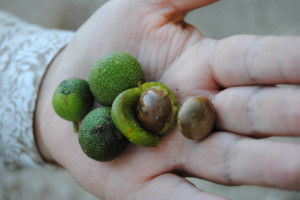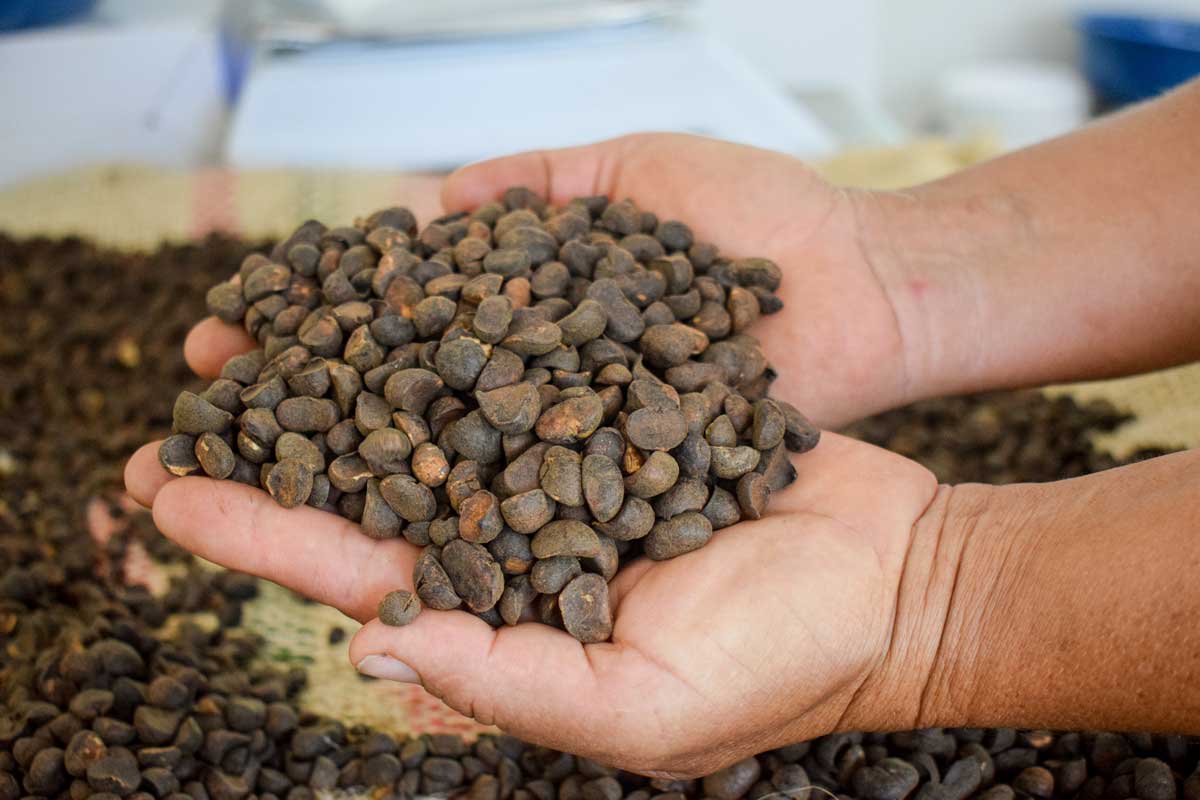On April 25 2014, at 11 am in the Millennium Seed Bank Seminar Room Wakehurst Place, Erika Vohman of the Maya Nut Institute will give a seminar entitled ‘Livelihood and conservation value of Maya Nut (Brosimum alicastrum) in Central America’, Erika Vohman. Erika has been working with Brosimum alicastrum for over a decade and is founder of the US NGO, the May Nut Institute whose mission is to find a balance between people, food and forests by teaching rural communities about the value of Maya Nut for food, fodder, ecosystem services and income. Directions to the Seed Bank can be found by clicking on this link.Brosimum alicastrum fruits, known as Maya Nuts in the US
Brosimum alicastrum is one of the most widespread and common species in evergreen and semi-evergreen tropical forests in Mexico and northern Central America. It is recognized as a famine food, fodder crop, timber and fuelwood. Also as a key species for reforestation in Central America. Examples of ongoing reforestation include the ‘Healthy Kids, Healthy Forests’ program in Guatemala and Nicaragua (150,000 trees respectively), the ‘Programa Reverdecer’ (Re-greening) in Guatemala (50,000 trees) and the Ecological Ranching Program in Guatemala (300,000 trees) and Restoration of Lake Peten-Itza Watershed (600 ha of trees planted).
In Honduras Maya Nut harvest can generate $650 per ha per annum compared to $326 for a combined maize and beans production system. Erika has been working with Alex Monro (The Natural History Museum / RBG Kew) on a Darwin Initiative funded project ‘Tools for the sustainable harvesting of Maya Nut (Mesoamerica) 18-010’ which finished in March 2014. Erika will talk about her work and in particular her strategy for market-driven community based conservation, improving women’s participation in conservation and Maya Nut restoration and reforestation in the Neotropics. Erika’s talk should last for 30-45 minutes.






